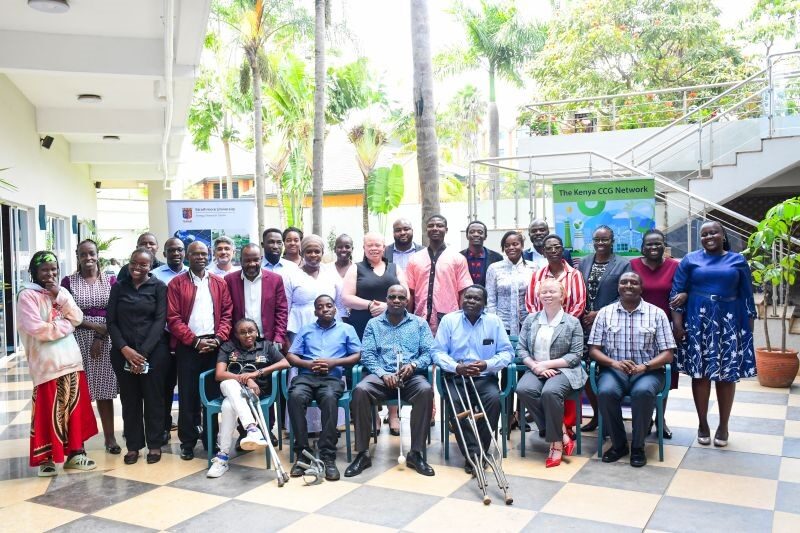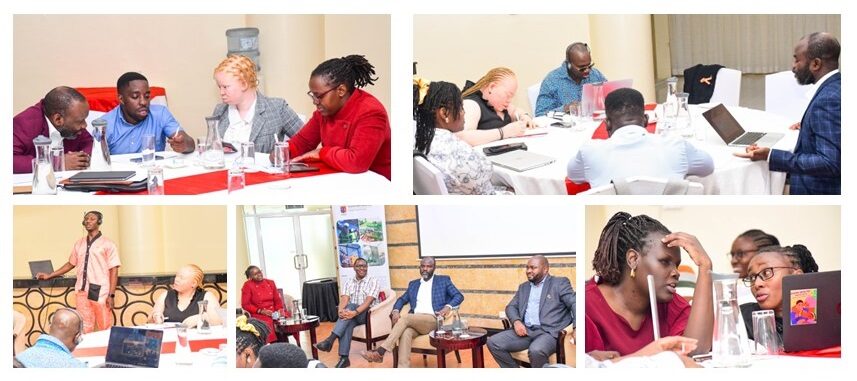A key part of CCG’s work is to support countries in creating clean energy and sustainable growth plans that better reflect the needs of all communities within their populations; groups that previously may have been left out like women, people with disabilities, young people and other marginalised groups. This work is generally called GESI (or GEDSI) referring to Gender Equality (Disability) and Social Inclusion.

Last week CCG and Strathmore Energy Research Centre held a workshop to explore Disability in Energy Transition with delegates from Zambia, Malawi, Ghana, and Kenya. Around 20 people with a range of disabilities attended this pioneering event organised by Dr Gerald Arhin, Research Fellow at CCG. The workshop comes at a crucial time and the opinions gathered will be used to ensure that African governments include the needs of all members of the community when designing climate-conscious policies. Globally, one-sixth of the world’s population (1.3 billion people) live with some form of disability.
During his opening remarks, Dr Gerald Arhin highlighted that persons with disability (PWDs) are likely to depend on carbon-intensive energy sources and are more likely to face financial barriers in transitioning to cleaner energy. Currently, there is a lack of qualitative and quantitative data on persons with disabilities, so this workshop aimed to explore how to address that.

Mourice Wambua Kausya from Nuvoni Centre for Innovation Research presented findings from his research on Intersectional Analysis of GEDSI in Kenya’s Energy Sector with a focus on Informal settlements. One of the insights found was that energy justice hinges not only on gender but inclusion of other marginalized groups.
The country teams from CCG Kenya, Zambia, Malawi, and Ghana held breakout sessions to discuss current policies, planned interventions, and the existing gaps and challenges in disability inclusivity.
The country teams from CCG Kenya, Zambia, Malawi, and Ghana held breakout sessions to discuss current policies, planned interventions, and the existing gaps and challenges in disability inclusivity.
Anne Nganga of Strathmore Energy Research Centre commented: “I was honoured to moderate a crucial discussion at the Disability in Energy Transition Scoping Workshop. Leading this session reinforced a key reality: the energy transition cannot be truly just if persons with disabilities are left behind. Yet, they continue to face barriers—financial, policy-related, enforcement of laws and infrastructural—that limit their access to cleaner energy. The lack of awareness, comprehensive data and research on this group makes it even harder to design inclusive energy policies and effectively implement them. A critical question that emerged in our group was how we shift from merely accommodating persons with disabilities to actively empowering them in the transition agenda. This workshop was just the beginning.”

The next step includes mapping country policy and analysis in energy and transport sectors to identify gaps in the sector.
Our sincere thanks to all our partners for their support but most of all to the participants who shared their experiences and recommendations with us.

